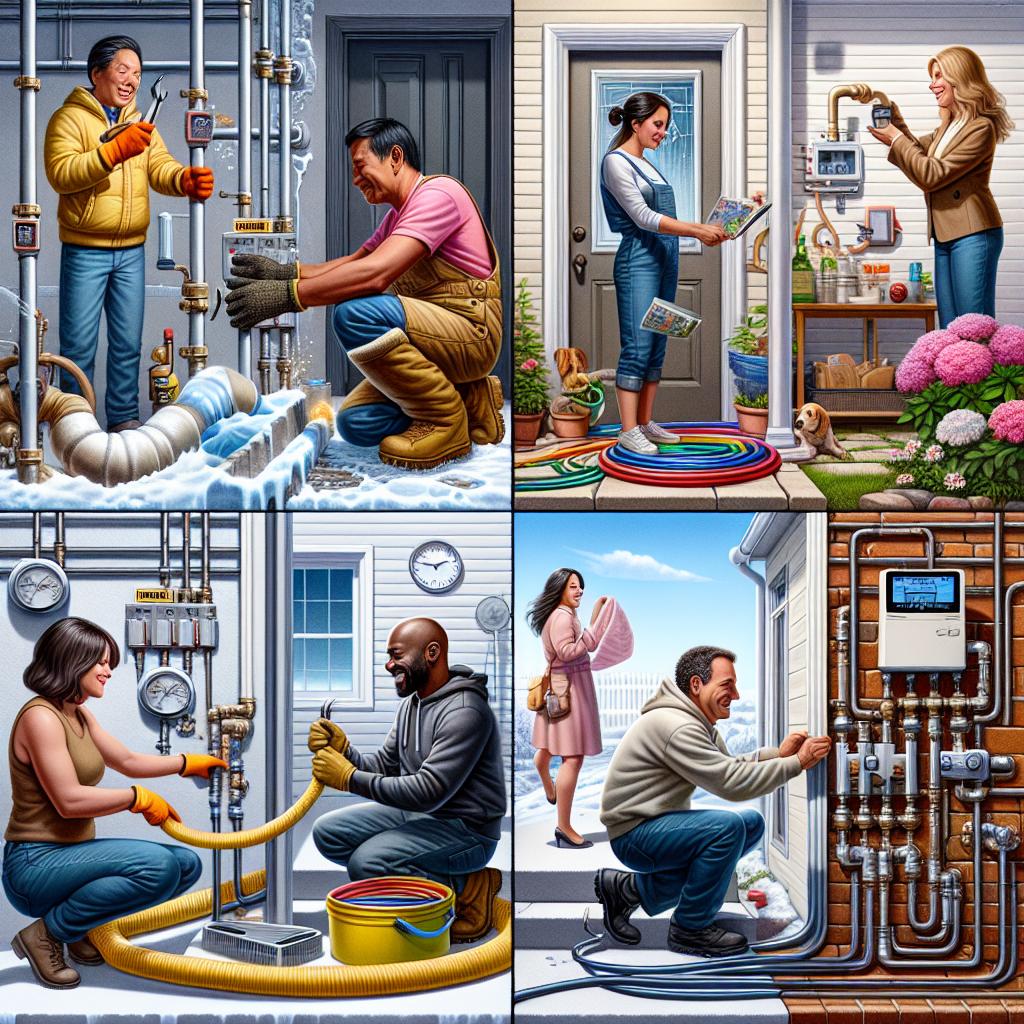Keeping Your Pipes in Check: A Seasonal Guide to Year-Round Plumbing Health
Your home’s plumbing system plays a vital role in maintaining comfort and hygiene. Drastic temperature changes, weather conditions and fluctuating usage levels over the year may put additional strain on your pipes, potentially leading to major issues. However, by observing a routine check and adopting some preventive measures, you can ensure that your plumbing system remains healthy and efficient all year round. This blog provides a timely guide to aid you in keeping your pipes in check, season by season.
Winter: Preparing for the Cold
As the temperature drops, one of the biggest threats to your plumbing system is the potential of freezing pipes. When the water inside your pipes freezes, it expands, causing additional pressure inside your pipes, which may lead to cracks and bursts. Here is how to winterize your plumbing system effectively:
Insulate Your Pipes
Insulating materials, such as pipe jackets, can provide an excellent defense against frost, and help to maintain the water temperature inside. Special attention should be given to the pipes located in unheated spaces, like garages, basements, or outdoor hose bibs, where the chance of freezing is much greater than in heated areas.
Let the Faucet Drip
If temperatures are likely to hit freezing levels, opening your instance of flow faucets just a touch to let them drip can help to relieve the pressure and prevent pipe bursts. Yes, this may lead to a slightly higher water bill, but that’s a small price to pay compared to the costs of repairing a burst pipe.
Spring: A Time for Thorough Inspection
The arrival of spring provides an opportunity for a thorough check-up of your plumbing system. This not only helps to identify and fix lingering winter issues but also prepares the system for increased usage in summer.
Check for Leaks
Examine every section of your plumbing system, from the kitchen sink to bathroom fixtures, outdoor faucets, and hose bibs, to look for signs of leaks or drips. If you notice any, it’s crucial to repair them promptly as even small leaks can lead to bigger problems if left untreated.
Flush the Water Heater
Over time, sediment can accumulate in your water heater, compromising its efficiency and capacity. An annual flush is recommended to remove this sediment build-up, ensuring that your water heater functions at its best during the summer months, when hot water demand usually increases.
Summer: Minimising Wear & Tear
Summertime often means more guests, more indoor activities as well as outdoor gardening—all of which put additional pressure on your plumbing system. Here are a few ways you can prevent summer plumbing issues:
Mind Your Garbage Disposal
With more cookouts and gatherings, your garbage disposal may experience increased usage. Be mindful of what you put down the disposal—avoid hard items, fibrous foods, grease, and oils that can damage the blades or clog your pipes.
Optimise Sprinkler System
If you use a sprinkler system to water your yard, make sure it is optimized to only water when necessary, and that it isn’t causing water to pool around your house’s foundation, where it could lead to serious damage.
Autumn: Preparing for the Upcoming Cold
As the leaves begin to fall and temperatures start to drop, you should prepare your plumbing system for the upcoming winter. Here’s how:
Drain Outdoor Faucets & Irrigation Systems
To prevent pipes from freezing and bursting during the winter months, it’s essential to drain water from outdoor faucets and irrigation systems. This act ensures that the pipes are dry before the frost sets in.
Clean Gutters and Downspouts
During autumn, leaves and debris can clog your gutters and downspouts, which may cause water to backed up into your home’s structure. A thorough cleaning is necessary to ward off potential water damage to your home.
Year-round attention to your home’s plumbing system can prevent breakdowns and emergency repairs, saving you a significant amount of time, stress, and money. By practicing these tips, you can ensure that your home’s plumbing remains healthy throughout the year.
Remember, if there’s something that looks too complicated or beyond your competency, don’t hesitate to call in a professional plumber. After all, it’s better to have preventative maintenance performed than dealing with a major plumbing disaster.




